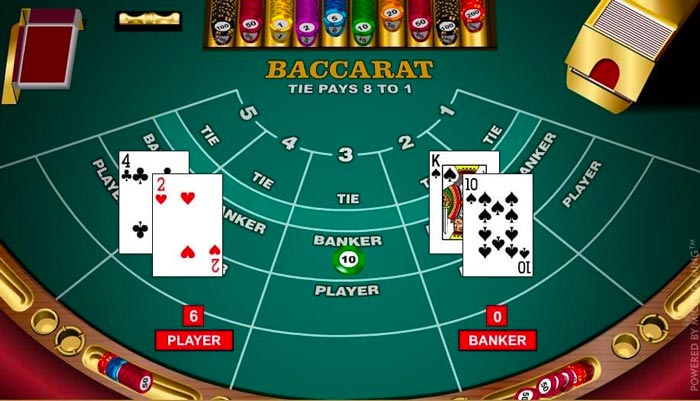Gambling can be a fun and exciting activity, but it can also be addictive and harmful. That’s why it’s important to gamble responsibly and know how to set limits, self-exclude, and seek help if needed. In this article, we’ll explore the importance of responsible gambling and provide tips on how to stay in control.
The Importance of Responsible Gambling:
Responsible gambling is all about ensuring that your gambling activities are safe, enjoyable, and within your means. It means setting limits on the amount of time and money you spend gambling, and being aware of the potential risks and harms. Responsible gambling also involves knowing when to seek help if gambling starts to take over your life.
Setting Limits:
Setting limits is an important part of responsible gambling. It means deciding in advance how much time and money you can afford to spend on gambling, and sticking to those limits. You can set limits on your online gambling account, or use a budgeting app to track your spending. It’s also a good idea to take regular breaks and not to chase your losses.
Self-Exclusion:
Self-exclusion is a voluntary program that allows you to exclude yourself from gambling for a set period of time. This can be a useful tool if you feel that your gambling is becoming a problem. You can self-exclude from online gambling sites or from physical casinos. During the self-exclusion period, you won’t be able to access your online gambling account or enter a casino.
Seeking Help:
If you feel that your gambling is becoming a problem, it’s important to seek help. There are many support groups and organizations that can provide assistance and advice. You can also speak to your doctor or a mental health professional. Remember, there’s no shame in seeking help, and it’s never too late to make a change.
Also read : Understanding the Psychology of Gambling
What are some common signs that someone’s gambling is becoming a problem?
There are several common signs that someone’s gambling is becoming a problem. These include:
- Spending more money on gambling than one can afford
- Spending more time gambling than one should
- Neglecting responsibilities, such as work or family, to gamble
- Lying to friends and family members about gambling activities and losses
- Borrowing money to gamble or to pay off gambling debts
- Feeling restless or irritable when not gambling
- Chasing losses by continuing to gamble in an attempt to recoup previous losses
- Preoccupation with gambling, constantly thinking about the next opportunity to gamble
- Using gambling as a way to escape from stress or negative emotions
- Experiencing negative emotional and physical effects, such as depression, anxiety, and sleep problems, due to gambling.
If you or someone you know is experiencing any of these signs, it is important to seek help and support. There are many resources available, such as support groups and counseling services, that can help individuals overcome problem gambling and regain control of their lives.
What are some strategies for overcoming problem gambling?
There are several strategies for overcoming problem gambling. These include:
1. Self-Exclusion: Self-exclusion is a voluntary program that allows individuals to exclude themselves from gambling for a set period of time. This can be a useful tool to help individuals break the cycle of gambling addiction and avoid temptation.
2. Seeking Professional Help: Professional help, such as counseling or therapy, can help individuals address underlying issues that may be contributing to their gambling addiction. It can also provide individuals with coping strategies to manage the urge to gamble.
3. Support Groups: Joining a support group, such as Gamblers Anonymous, can provide individuals with a community of people who are going through similar struggles. Support groups can provide encouragement, accountability, and a safe space to share experiences.
4. Financial Counseling: Seeking financial counseling can help individuals manage their debts and develop a plan to pay off gambling debts. This can also help individuals develop a budget and financial plan to prevent future financial problems.
5. Lifestyle Changes: Making lifestyle changes, such as finding new hobbies or activities to replace gambling, can help individuals break the cycle of addiction and develop new healthy habits.
6. Mindfulness and Meditation: Mindfulness and meditation can help individuals develop greater awareness of their thoughts and emotions, which can help them better manage the urge to gamble. These practices can also help individuals develop greater self-control and emotional regulation.
It’s important to note that overcoming problem gambling is a process that may take time and require ongoing support. However, with the right strategies and support, individuals can overcome their addiction and regain control of their lives.
How can I find a support group for problem gambling?
There are several ways to find a support group for problem gambling:
1. National Council on Problem Gambling: The National Council on Problem Gambling is a nonprofit organization that provides resources and support for individuals and families affected by problem gambling. They offer a directory of support groups and counseling services by state on their website.
2. Gamblers Anonymous: Gamblers Anonymous is a self-help support group for individuals struggling with problem gambling. They offer in-person and online meetings, as well as a 24-hour chat service. Their website provides a directory of meetings by location.
3. SMART Recovery: SMART Recovery is a self-help program that offers support for individuals struggling with addictive behaviors, including problem gambling. They offer in-person and online meetings, as well as a 24/7 message board. Their website provides a directory of meetings by location.
4. Counseling Services: Many mental health counseling services also offer support groups for individuals struggling with problem gambling. You can search for counseling services in your area and inquire about support groups they may offer.
5. Community Centers: Local community centers, such as recreation centers or churches, may also offer support groups for problem gambling. You can check with your local community center to see if they offer any support groups.
It’s important to find a support group that is a good fit for your needs, so don’t be afraid to try multiple options until you find one that works for you. Support groups can provide a valuable source of encouragement, accountability, and empathy for individuals struggling with problem gambling.
Conclusion:
Responsible gambling is important for anyone who enjoys gambling. By setting limits, self-excluding, and seeking help if needed, you can ensure that your gambling activities are safe, enjoyable, and within your means. Remember, gambling should be fun, not harmful.
In conclusion, it’s important to prioritize responsible gambling and take the necessary steps to ensure that you’re gambling in a safe and sustainable way. By setting limits, self-excluding, and seeking help if needed, you can keep your gambling activities under control and enjoy the thrill of the game without risking your well-being.
Responsible gambling is all about ensuring that your gambling activities are safe, enjoyable, and within your means. It means setting limits on the amount of time and money you spend gambling, and being aware of the potential risks and harms. Responsible gambling also involves knowing when to seek help if gambling starts to take over your life.
Responsible gambling is important because it helps to prevent problem gambling and gambling addiction. It also ensures that gambling activities are safe and enjoyable for all participants.
You can gamble responsibly by setting limits on the amount of time and money you spend gambling, taking regular breaks, and not chasing losses. It’s also important to be aware of the potential risks and harms of gambling and to seek help if gambling starts to take over your life.
The potential risks and harms of gambling include addiction, financial problems, relationship problems, and mental health issues, such as depression and anxiety.
You can set limits on your gambling by setting a budget for how much money you can afford to spend and sticking to it. You can also set limits on the amount of time you spend gambling and take regular breaks.
Self-exclusion is a voluntary program that allows individuals to exclude themselves from gambling for a set period of time. This can be a useful tool to help individuals break the cycle of gambling addiction and avoid temptation.
You can seek help for problem gambling by contacting a support group or counseling service. The National Council on Problem Gambling offers a national helpline that provides confidential support and referrals to local resources.
Tips for avoiding problem gambling include setting limits on the amount of time and money you spend gambling, avoiding chasing losses, and taking regular breaks. It’s also important to be aware of the potential risks and harms of gambling and to seek help if gambling starts to take over your life.
Common signs of problem gambling include spending more money on gambling than one can afford, spending more time gambling than one should, neglecting responsibilities to gamble, lying to friends and family members about gambling activities and losses, and experiencing negative emotional and physical effects due to gambling.
No, gambling can never be completely risk-free. However, by gambling responsibly and being aware of the potential risks and harms, individuals can minimize the risks and enjoy the activity in a safe and sustainable way.
What is National Council on Problem Gambling
The National Council on Problem Gambling (NCPG) is a nonprofit organization in the United States that provides resources and support for individuals and families affected by problem gambling. The organization was founded in 1972 and is based in Washington, D.C.
The NCPG’s mission is to increase public awareness of problem gambling and to provide support and resources for individuals and families affected by it. They work to promote responsible gambling practices and to prevent problem gambling through education and advocacy efforts.
The NCPG offers several resources for individuals and families affected by problem gambling, including:
1. National Problem Gambling Helpline: The NCPG operates a national helpline for individuals seeking help for problem gambling. The helpline is available 24/7 and provides confidential support and referrals to local resources.
2. Treatment Provider Directory: The NCPG offers a directory of treatment providers for problem gambling by state. The directory includes information on counseling services, support groups, and other resources for individuals seeking help.
3. Education and Awareness Programs: The NCPG offers education and awareness programs for individuals, schools, and community organizations. These programs help to promote responsible gambling practices and to prevent problem gambling.
4. Advocacy and Public Policy: The NCPG works to promote public policies that support responsible gambling practices and to prevent problem gambling. They advocate for increased funding for problem gambling research and treatment, as well as for increased access to gambling addiction treatment services.
The NCPG is a respected voice in the field of problem gambling and is a valuable resource for individuals and families affected by it. They work to promote responsible gambling practices and to provide support and resources for individuals struggling with problem gambling.














